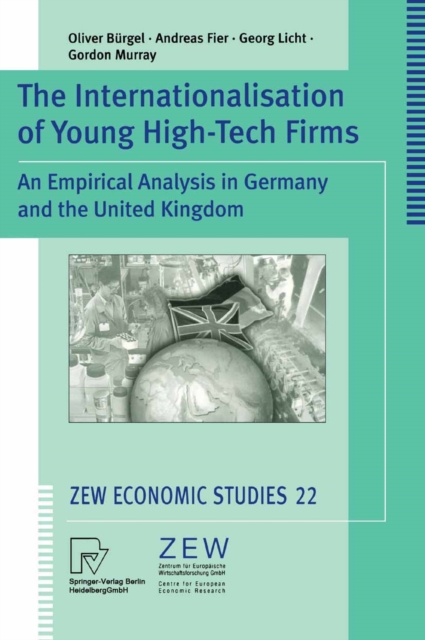
The Internationalisation of Young High-Tech Firms : An Empirical Analysis in Germany and the United Kingdom PDF
by Oliver Burgel, Andreas Fier, Georg Licht, Gordon Murray
Part of the ZEW Economic Studies series
Description
There is now a certain tradition of Anglo-German comparative research on new technology-based firms (NTBFs).
Two of the most influential studies in this area have both been sponsored by the Anglo-German Foundation for the Study of In- dustrial Society (AGF).
Starting in 1977, the first AGF project on NTBFs, which was carried out by the consultancy firm Arthur D.
Little, has been one ofthe most important early contributions in this field (Little 1977).
This report was the first public document to use the term 'new technology-based firm' and to provide a definition, which despite its operational limitations subsequently became an es- tablished term in the literature.
More importantly, this study represented one ofthe first serious attempts to survey the existing stock of this type of firm.
The report was critical of the contemporary situation in Europe. (This is a policy area which continues to be hotly debated, see European Commission 1995, Bank of England 1996 and HM Treasury 1998. ) It emphasised that, in comparison with the USA, Germany and the UK were each lagging behind if judged by the rate of formation of NTBFs and in their total contribution to the overall economic activity of both countries.
In terms of a policy contribution, this study was instrumental in high- lighting the lack ofsupport infrastructures for the genesis and growth of high-tech start-ups in two of Europe's leading economies.
Information
-
Download - Immediately Available
- Format:PDF
- Publisher:Physica-Verlag HD
- Publication Date:06/12/2012
- Category:
- ISBN:9783790827026
Other Formats
- Paperback / softback from £78.95
Information
-
Download - Immediately Available
- Format:PDF
- Publisher:Physica-Verlag HD
- Publication Date:06/12/2012
- Category:
- ISBN:9783790827026










